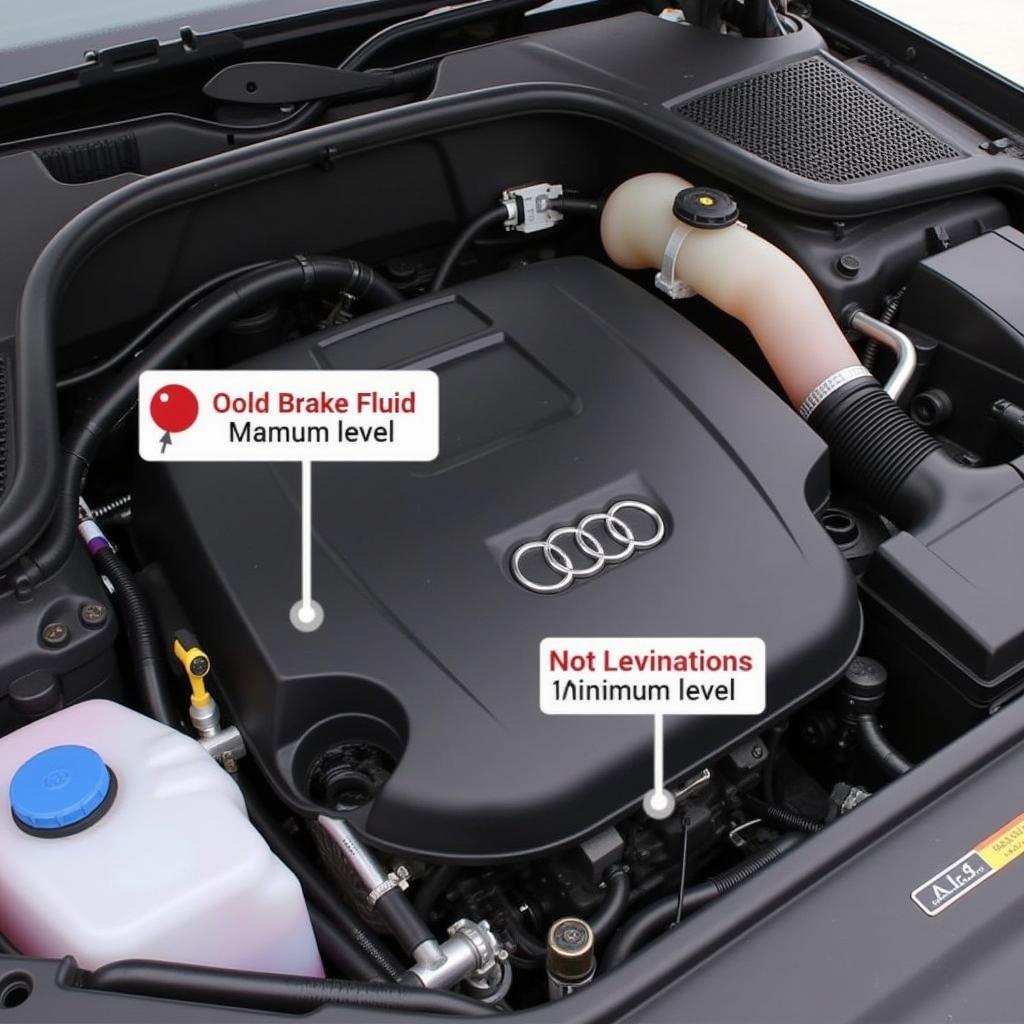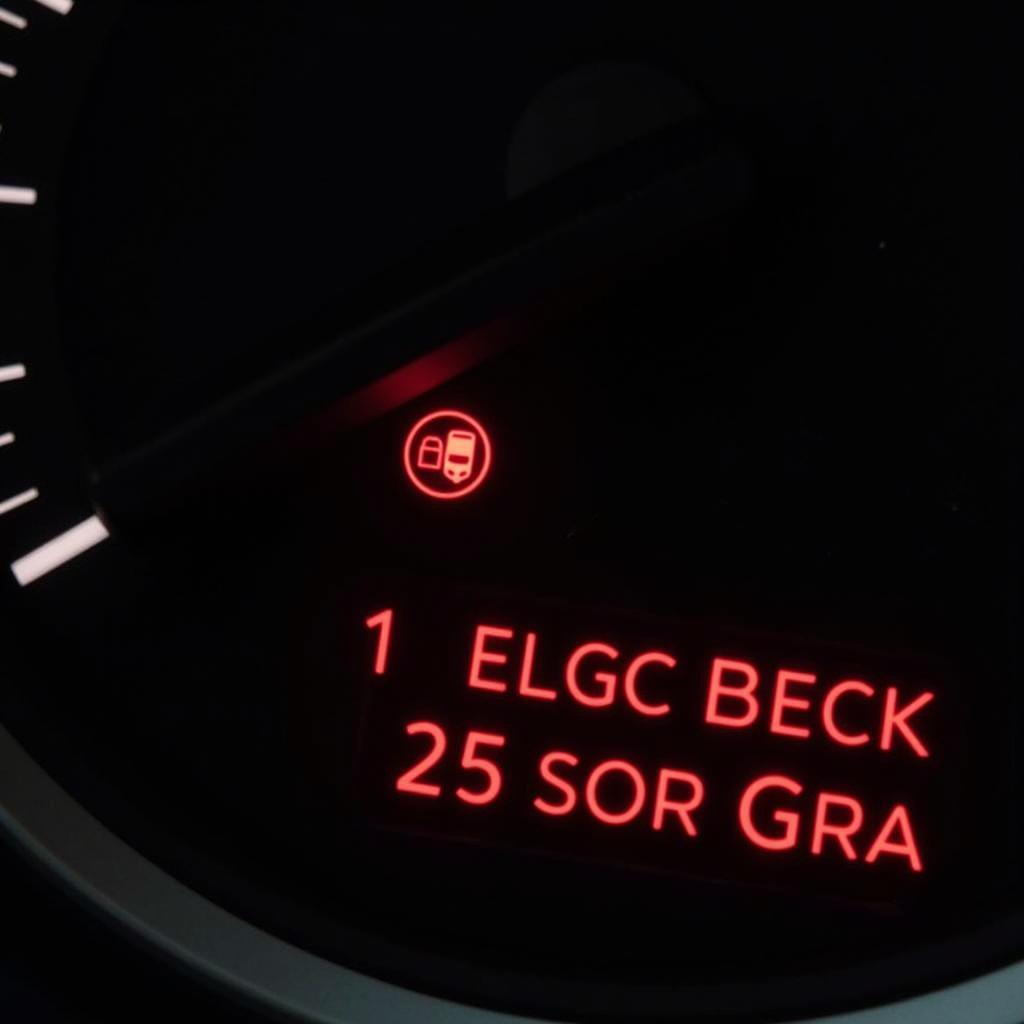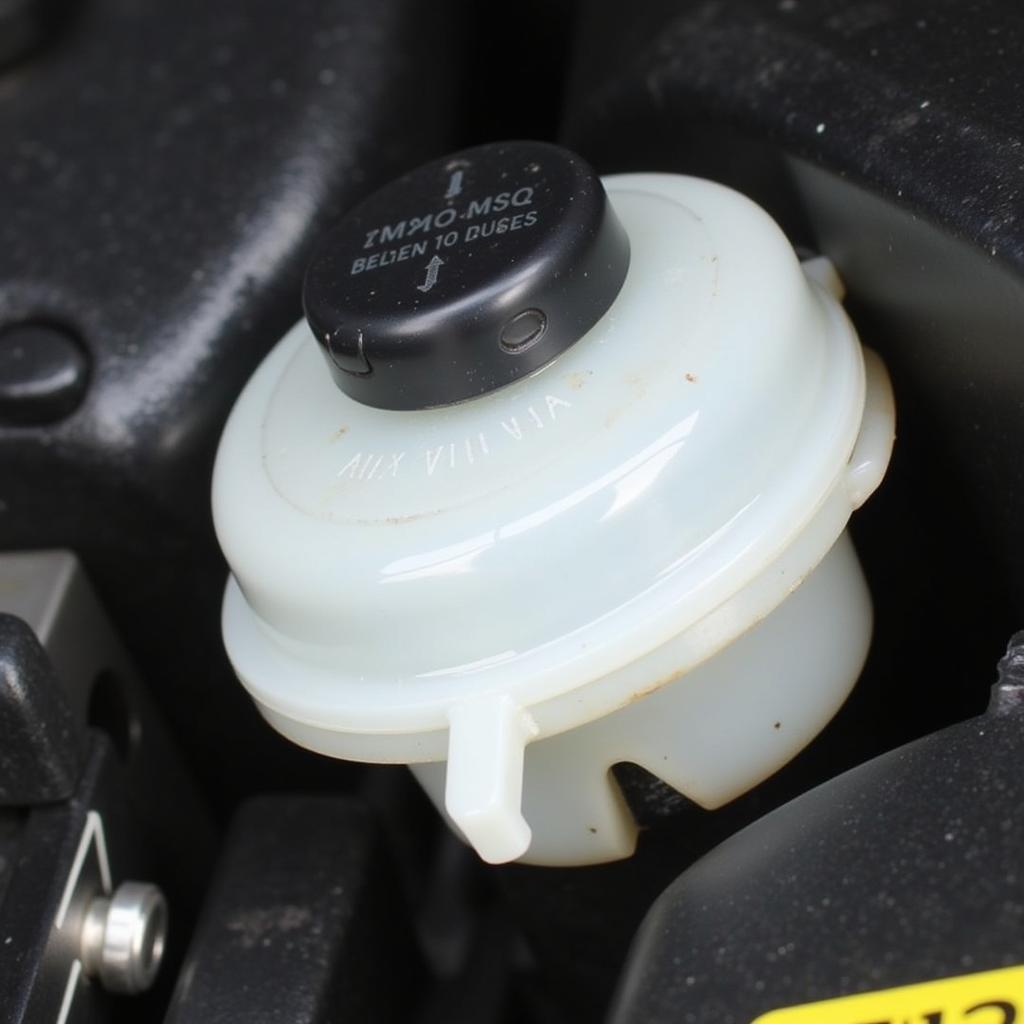The dreaded brake warning light on your Audi dashboard can be a heart-stopper, especially if you’re not sure what it means. Is it a minor glitch or a serious safety concern? This comprehensive guide will walk you through the common causes of an illuminated Audi brake warning light and equip you with the knowledge to troubleshoot the issue effectively.
Understanding Your Audi Brake Warning Light
Your Audi’s brake warning light is part of a complex system designed to alert you of potential issues with your braking system. Unlike other warning lights that might illuminate briefly during startup, the brake warning light should disappear once you start your engine and disengage the parking brake. If it stays on, flashes intermittently, or appears while driving, it’s crucial to investigate further.
Common Causes of an Audi Brake Warning Light
Several factors can trigger the brake warning light in your Audi. Here are some of the most common culprits:
-
Worn Brake Pads: This is the most frequent reason for the warning light. Most Audi vehicles are equipped with brake pad wear sensors that trigger the light when the pads thin out, indicating it’s time for a replacement.
-
Low Brake Fluid Level: Brake fluid is the lifeblood of your braking system, transmitting the force from your foot on the brake pedal to the wheels. A low fluid level can indicate a leak in the system, which requires immediate attention.
 Low Brake Fluid Warning Audi
Low Brake Fluid Warning Audi
-
Faulty Brake Light Switch: The brake light switch activates your brake lights when you press the brake pedal. A malfunctioning switch can not only prevent your brake lights from working but also trigger the warning light on the dashboard.
-
ABS Sensor Issues: Your Audi’s Anti-lock Braking System (ABS) relies on sensors to monitor wheel speed and prevent wheel lockup during hard braking. A faulty ABS sensor can disrupt the system and illuminate the warning light.
-
Issue with the Electronic Parking Brake: Many modern Audis feature electronic parking brakes instead of traditional handbrakes. Problems with the electronic system, such as a faulty switch or sensor, can trigger the brake warning light.
 Audi Electronic Parking Brake Warning Light
Audi Electronic Parking Brake Warning Light
Troubleshooting Your Audi Brake Warning Light
While it’s always best to consult a qualified mechanic for brake-related issues, here are some initial steps you can take to troubleshoot the warning light:
-
Check Your Brake Fluid Level: Refer to your owner’s manual for the location of the brake fluid reservoir and instructions on how to check the fluid level safely. If it’s low, top it off with the recommended brake fluid type for your Audi model. However, be aware that simply adding fluid won’t fix a leak.
-
Inspect Your Brake Pads: If you’re comfortable with basic car maintenance, you can visually inspect your brake pads. Look through the spaces between the wheel spokes for the brake caliper and pad. Thin brake pads require immediate replacement.
-
Check Your Brake Lights: Have a friend or family member press the brake pedal while you stand behind the vehicle to ensure all brake lights are functioning correctly.
-
Scan for Diagnostic Trouble Codes (DTCs): If you have access to an OBD-II scanner, you can scan your Audi’s computer for diagnostic trouble codes related to the braking system. This can provide valuable insights into the root cause of the problem.
When to Seek Professional Help
If you’re unable to pinpoint the cause of the brake warning light or are uncomfortable performing the troubleshooting steps mentioned above, it’s crucial to seek professional assistance. Driving with a potential brake issue can be extremely dangerous.
Here are some situations where immediate professional help is necessary:
- The brake warning light remains illuminated even after adding brake fluid.
- You notice a spongy or soft brake pedal feel.
- You hear unusual grinding or squealing noises when braking.
- Your Audi pulls to one side when braking.
Expert Insight
“Many car owners underestimate the importance of regular brake system maintenance,” says Tim Miller, a seasoned Audi mechanic with over 20 years of experience. “Regular brake fluid flushes, timely brake pad replacements, and addressing warning lights promptly can prevent costly repairs and ensure your safety on the road.”
FAQs – Audi Brake Warning Light
Q: Can I still drive my Audi with the brake warning light on?
A: It’s highly discouraged to drive with an illuminated brake warning light. It indicates a potential problem with your braking system, which could compromise your safety.
Q: How much does it cost to fix an Audi brake warning light issue?
A: The repair cost can vary greatly depending on the underlying cause. A simple brake pad replacement is significantly less expensive than repairing a brake fluid leak or replacing a faulty ABS sensor.
Q: How often should I service my Audi’s braking system?
A: It’s generally recommended to have your brake system inspected annually or every 10,000-12,000 miles. However, consult your owner’s manual for specific service intervals recommended by Audi.
Conclusion
Addressing an illuminated brake warning light promptly is paramount for your safety and the longevity of your Audi. By understanding the common causes and following the troubleshooting steps outlined in this guide, you can take the appropriate action to rectify the issue. Remember, when in doubt, consult a qualified mechanic for expert diagnosis and repair. Ignoring a brake warning light is a risk you should never take. For specific information regarding your Audi model year, refer to our detailed guides on 2013 Audi A7 brake warning light, 2012 Audi A4 brake warning light or Audi TT Mk1 brake warning lights. You can also find helpful information on common issues like center brake light warning Audi A4 and 2001 Audi A4 brake light warning.

